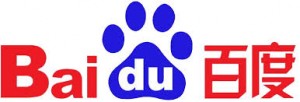ENTERTAINMENT: iQiyi Eyes IPO, Youku Nears NY Exit
Bottom line: Baidu’s sale of its Qiyi video unit is a first step before a domestic IPO, and the valuation from that sale shows that Alibaba is overpaying for rival video site Youku Tudou and that industry leader LeTV is still highly overvalued.

Two of China’s largest online video sites are in the headlines as the nation returns to work after the week-long Lunar New Year holiday, led by word that Baidu (Nasdaq: BIDU) is selling its controlling stake of its iQiyi online video unit. In this case the move looks like preparation for a domestic IPO by the unit, since the buyer of the stake is a group led by Baidu founder Robin Li and iQiyi chief Gong Yu.
The second report has Youku Tudou (NYSE: YOKU) announcing a date for its shareholders to vote on an offer to sell the company to e-commerce leader Alibaba (NYSE: BABA). The meeting will take place on March 14, and will mark a final step before Youku Tudou ceases its brief but stormy life as a publicly traded company and becomes part of Alibaba.
One of the most interesting things about both news items is that they finally allow us to compare China’s 3 leading online video operators in terms of valuation. According to its new announcement, the buyout offer for iQiyi, which is now being referred to as Qiyi.com, will value the company at $2.8 billion. (company announcement; Chinese article)
That figure is about half of the $5.4 billion valuation for Youku Tudou under the Alibaba buyout, and compares with a valuation of about $16 billion for sector leader LeTV (Shenzhen: 300104). It’s also worth noting that LeTV’s shares have been suspended since January 20, when the company cited a reorganization in a bid to halt a slide in its shares in tandem with China’s tanking stock markets. The main Shanghai stock index has fallen around 10 percent since that time, including a drop of more than 2 percent when trading resumed after the Lunar New Year holiday.
We’ll return to a look at the valuations shortly, but first let’s dive into the headline news that will see Baidu sell its 80.5 percent of Qiyi.com to the group led by Robin Li and Gong Yu. There’s not anymore detail in the release, except to say that Qiyi.com will remain a strategic partner of Baidu even after the sale.
Pre-IPO Move
As I’ve said above, this move looks like a step towards an IPO for Qiyi that is likely to come later this year. Baidu had previously taken steps for a New York IPO for the unit. But reports last year indicated it had shifted gears and was aiming to list it instead on a Nasdaq-style emerging industries board being planned to launch in Shanghai later this year.
The move would be part of a broader strategy that would see Baidu make separate domestic IPOs for many of its units not directly related to its core online search business. (previous post) Baidu is coming under pressure to make such a move from shareholders who worry the company is using its lucrative search business to heavily subsidize newer units like its money-losing Qunar (Nasdaq: QUNR) online travel service and Qiyi.com, which is also believed to be losing big money.
Next there’s the Youku Tudou news, which really is just an announcement of the March 14 date for shareholders to vote on the buyout Alibaba proposal disclosed late last year. (company announcement) In this case there’s little doubt that shareholders will approve the deal, which offered $27.60 for each of Youku Tudou’s American Depositary Shares (ADSs), representing a hefty premium to their earlier trading prices.
We’ll close by looking at the valuations of Qiyi, Youku Tudou and LeTV, and what they say about the companies. I was a bit surprised by the big gap between Qiyi’s and Youku Tudou’s valuations, since the 2 companies do seem quite comparable in scale. But then again, Alibaba is famous for paying big premiums for its acquisitions and is probably overpaying in this case.
Meantime, LeTV probably deserves to be valued more highly than either of its 2 rivals, though not nearly as high as its current share price. Accordingly, I expect its value will come down sharply, perhaps to around $10 billion from its current $16 billion level, once the shares resume trading and China’s stock rout runs its course.
Related posts:
- INTERNET: Baidu Hedges Between US, China with Spin-Off Plans
- ENTERTAINMENT: SMG’s Newest Target in Baidu’s iQiyi?
- INTERNET: Baidu Spending Binge Continues with New iQiyi Tie-Up
- Today’s top stories
(NOT FOR REPUBLICATION)
